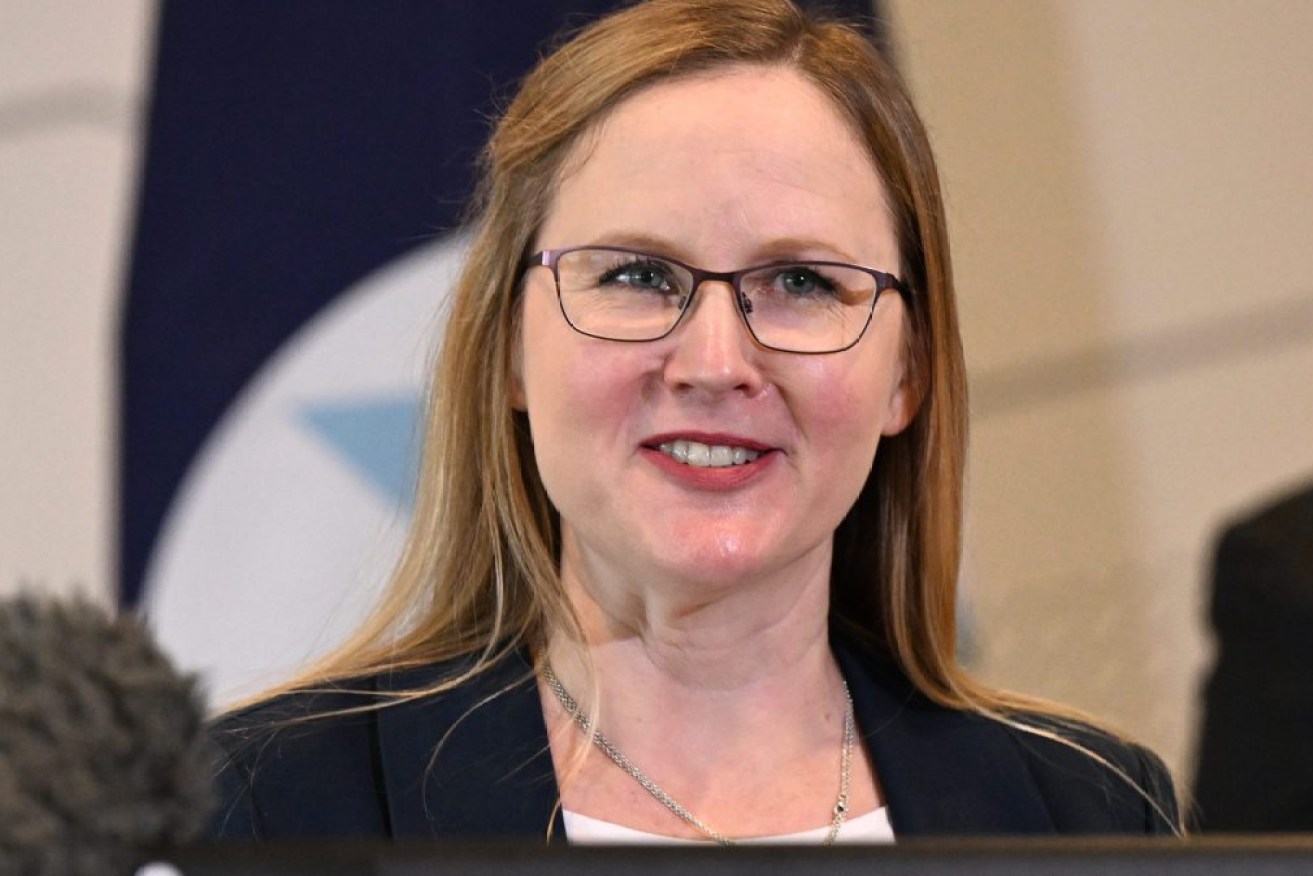Builders send up distress flare: How investment crisis may threaten Olympic plans
Queensland business is concerned about the state’s capacity to deliver on the pressing demands of the housing crisis, health funding as well as the huge costs and infrastructure associated with the Olympics.


Jen Williams, Queensland Executive Director of the Property Council of Australia (AAP Image/Darren England)
The Property Council’s Queensland executive director Jen Williams said that despite Queensland having all the ingredients for success, the reality was that attracting investment in housing would be critical to ensuring the workforce was available to deliver on the demands.
“With continued interstate migration, record spending on health infrastructure about to kick off and the Brisbane 2032 Olympics and Paralympic Games to look forward to concerns are arising regarding the state’s capacity to deliver on these once-in-a-generation opportunities,” Williams said.
The council said feedback from its members was that construction pricing and labour shortages were challenging the sector and rendering many projects unviable.
But the construction union, the CFMEU, said unregulated property developers were responsible for forcing up costs.
Williams said more was needed to unlock private investment in housing and backed a call from the Real Estate Institute of Queensland to remove foreign investor surcharges on residential property.
Her call came as the council and ANZ released the results of a joint survey which found the confidence index in Queensland had slipped slightly since the December quarter with businesses lowering the staffing, forward work and state economic growth expectations.
A net balance of 42 per cent of firms in the survey expected Australia’s growth to slow in the next 12 months. Excluding the pandemic years this was a record.
“The outlook in NSW and Victoria is unchanged while more firms expect lower growth in Queensland.”
The ANZ said that business concerns about high interest rates, access to finance and inflation had eased but continued to weigh on sentiment.
“Firms see housing affordability as the most pressing issue. More than 40 per cent of firms say housing affordability and supply is the most critical issue for both state and federal governments,” ANZ said.
“This comes at a time when affordability for both buyers and renters is deteriorating with the strong rebound in immigration alongside very low levels of supply exacerbating an already tight housing market.”
The survey found that more than a third of companies expected finance availability would deteriorate. This was sharply lower than the 45 per cent in December. Costs were still expected to grow strongly.
The Master Builders Association said there were not enough new houses entering the construction pipeline to meet demand. Apartments starts had fallen to the lowest level in more than 10 years.
“Despite the strong intention of both governments and industry to reach a target of one million homes under the Housing Accord, the data highlights that more needs to be done to tackle labour shortages and other supply constraints to speed up the delivery of new homes,” MBA chief executive Denita Wawn said.
“More needs to be done to speed up the delivery of new housing in the medium and high-density part of the market over the short term. Government efforts to expand the stock of social and affordable housing will provide welcome support.”












